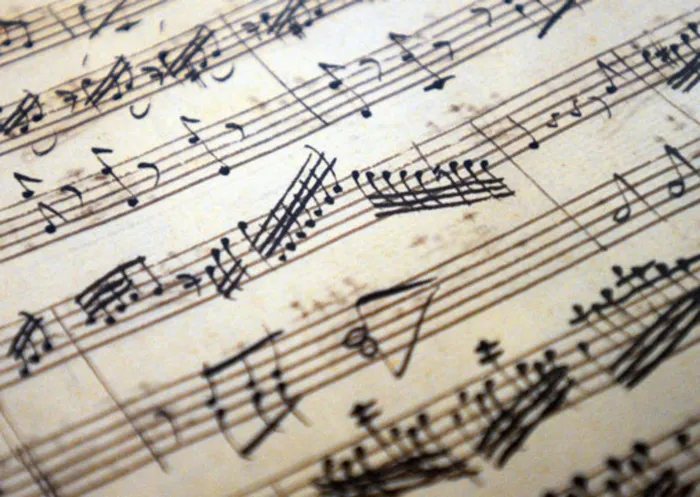How music could ease pain

Sheet music, recently identified as part of a childhood creation by Mozart, is seen during a press conference held by the research department of the International Mozarteum Foundation in Salzburg, Austria, Sunday, Aug. 2, 2009. Mozart's momentous legacy grew Sunday as researchers unveiled two piano pieces recently identified as childhood creations by the legendary composer. (AP Photo/ Kerstin Joensson) Sheet music, recently identified as part of a childhood creation by Mozart, is seen during a press conference held by the research department of the International Mozarteum Foundation in Salzburg, Austria, Sunday, Aug. 2, 2009. Mozart's momentous legacy grew Sunday as researchers unveiled two piano pieces recently identified as childhood creations by the legendary composer. (AP Photo/ Kerstin Joensson)
London - Listening to music before, after or during an operation reduces the pain and anxiety felt afterwards, a study has found.
Fewer painkillers are needed and patients leave hospital happier – with even those under general anaesthetic benefiting if music is played while they are on the operating table.
Researchers have called for music to be offered to all surgical patients as a “non-invasive, safe and cheap” pain intervention.
The team, from Brunel University London and Queen Mary University London, looked at data from 7 000 patients in 73 trials.
Patients were asked how much pain they felt on a scale of one to ten up to 24 hours after surgery.
Those who heard music at any point reported feeling an average of two fewer “pain points” than those who had not heard any music. They also required fewer pain killers and felt less anxious.
Listening to music at any time seemed effective, but those who listened to music before surgery felt slightly better than those who listened during or after. Patients who were allowed to select their own music also felt slightly better than those who had no choice.
The study, published in the Lancet medical journal, did not determine exactly why music had such a significant impact, but it is thought it is because it keeps the brain busy – effectively distracting people from pain. Trials suggest that even under anaesthetic the brain may still process sound.
Dr Catherine Meads, of Brunel, said: “Music is a non-invasive, safe, cheap intervention that should be available to everyone undergoing surgery. Patients should be allowed to choose the type of music… to maximise the benefit.”
Daily Mail